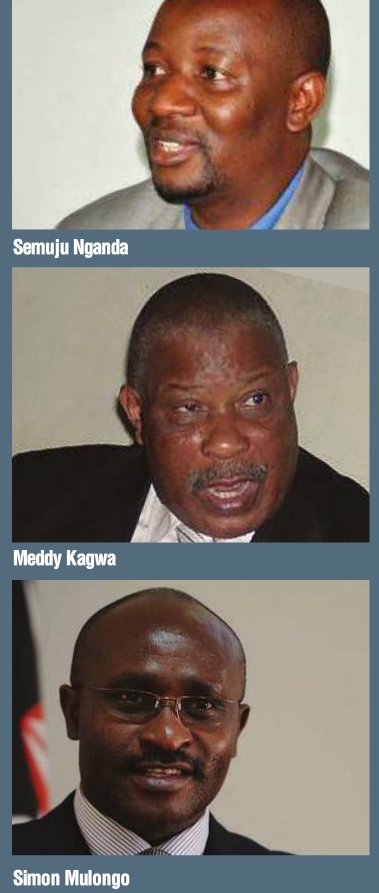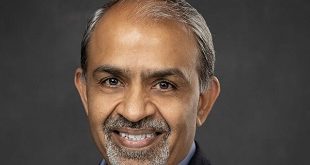
One particular officer had even abandoned his station and joined the beating frenzy. It also emerged that some of those administering the beating belonged to other agencies and had not been assigned to participate in this operation.
Police battering of civilians during opposition party gatherings are not new and the force is believed to have a trained and equipped `kiboko squad’. This time, however, insiders told The Independent that it appears police underestimated the outpouring of support for Besigye and had not planned and deployed adequately to handle the big crowds that turned out to cheer him.
With the police overwhelmed, Besigye was able to pick and choose where he passed and what he did.
Previously, the police would have used teargas to disperse the crowd. But this event happened as the police were switching their Standard Operating Procedure (SOP) from teargas to batons or, more accurately, canes or kiboko – because the police force does not have enough batons.
A plan was being worked out for security operatives to start using canes in dealing with demonstrations, a security insider told The Independent, because sticks were considered “more efficient than teargas”.
Unlike teargas which affects both those participating in unlawful activity and those going about their business, the source said, sticks are more selective.
But while some tree canes from thin tree branches (kiboko) would do the job, others warned that the sticks were not sanctioned tools and that instead police needed to deploy standardised tools like batons.
The finer details on how it would work had not been worked when Besigye was released again. Many had hoped he would still be behind the bars, a source in police told us. In this chaos, a top police commander who talked to The Independent on conditions of anonymity said some overzealous officers who were keen to exhibit the effectiveness of the sticks, went on a beating spree that left hundreds, including bystanders, injured.
Museveni to blame
But a senior police officer who talked to The Independent on conditions of anonymity said that while there have been mistakes by officers here and there, most of those agitating for human rights are simply using it as a disguise for their political activism.
“Those in the opposition are always quick to blame,” he said, “but for us the most important thing is keeping peace and order and we have tried. No matter what critics say order is there.”
He could have been referring to the spokesperson of the biggest opposition group; FDC, Semujju Nganda, who has been the most vocal legislator on the Defence and Internal Affairs Committee of parliament (which oversees police).
But Semujju, in fact, wants Museveni held responsible for the police brutality and not only Kayihura. He says the police use excessive force to handle the opposition because those are the orders they have been given.
“What else do you expect police to do when the president is involved in meetings in Kyankwanzi where the discussion is how to stop FDC in Kampala and Wakiso,” Semujju asked.
The legislator said that what police is doing is neither new nor worse than what they have done in the past; it may just be that Ugandans are tired of it all.
Indeed, security operatives’ actions were fatal during the 2009 Kayunga riots and the 2011 Walk toWork protests when about ten people were shot dead. No one has been reported dead this time around but the outrage is immense.
But Simon Mulongo, a former ruling party MP and regular commentator on security issues, says outrage against the police is being politicised and exaggerated.
“The opposition wants to gain momentum and they see this as a weak point to exploit and excite the public,” Mulongo said.
He said he is opposed to the use of non-commissioned groups by the police to maintain law and order but insisted that police must use any means necessary to control crowds and maintain order.
“We need to find out whether the people being beaten are peaceful and if we find that they are, then there is a problem,” Mulongo said, “But if they are involved in unlawful demonstrations, then the police must not be judged harshly.”
The methods to maintain law and order vary from one situation to another, he said. “If a situation requires batons, police will use batons,” Mulongo said, “If the situation requires sticks, police will use sticks. There is room for innovation. Remember, there is a time when batons were also not codified. May be what we may need to do is to look at how to codify the use of sticks in situations where the use of sticks is necessary to keep law and order.”
For now, it is not clear how Museveni will deal with the police brutality scandal. In any case, even if he decides to remove Kayihura, he will not do it immediately as it is not his style to react directly and could be seen as a sign of weakness to succumb to public pressure.
While closing the government retreat at the Kyankwanzi Leadership Institute, he appeared to criticise police brutality and defend police at the same time.
“We don’t support police brutality but you also know that we don’t support the indiscipline of the political actors like Dr Besigye,” Museveni said.
The comment appears to have reassured the handlers of Kayihura who have been struggling to understand how the president would react at the public outrage against police. Amidst rising pressure and calls for Kayihura to resign, some of his handlers remain confident the police chief will stay on job because “he still enjoys the support of the President despite a few mistakes here and there”.
One observer said Kayihura’s long stay at police, despite a long list of reports of brutality is because he serves Museveni perfectly.
“He understands what Museveni wants without the President having to tell him,” the source said.
Critics like Semujju Nganda say, possibly because of this, the problem does not start with Kayihura or the police.
“The police force is a victim of the dictatorship,” he says, “You are going to have these situations where you have political conflicts and the ruling class feels that they should use the police to protect themselves in power.”
For Semujju, it does not matter whether Museveni removes Kayihura.
“As long as the template remains, you will be beaten the same way.”
****
editor@independent.co.ug
 The Independent Uganda: You get the Truth we Pay the Price
The Independent Uganda: You get the Truth we Pay the Price



